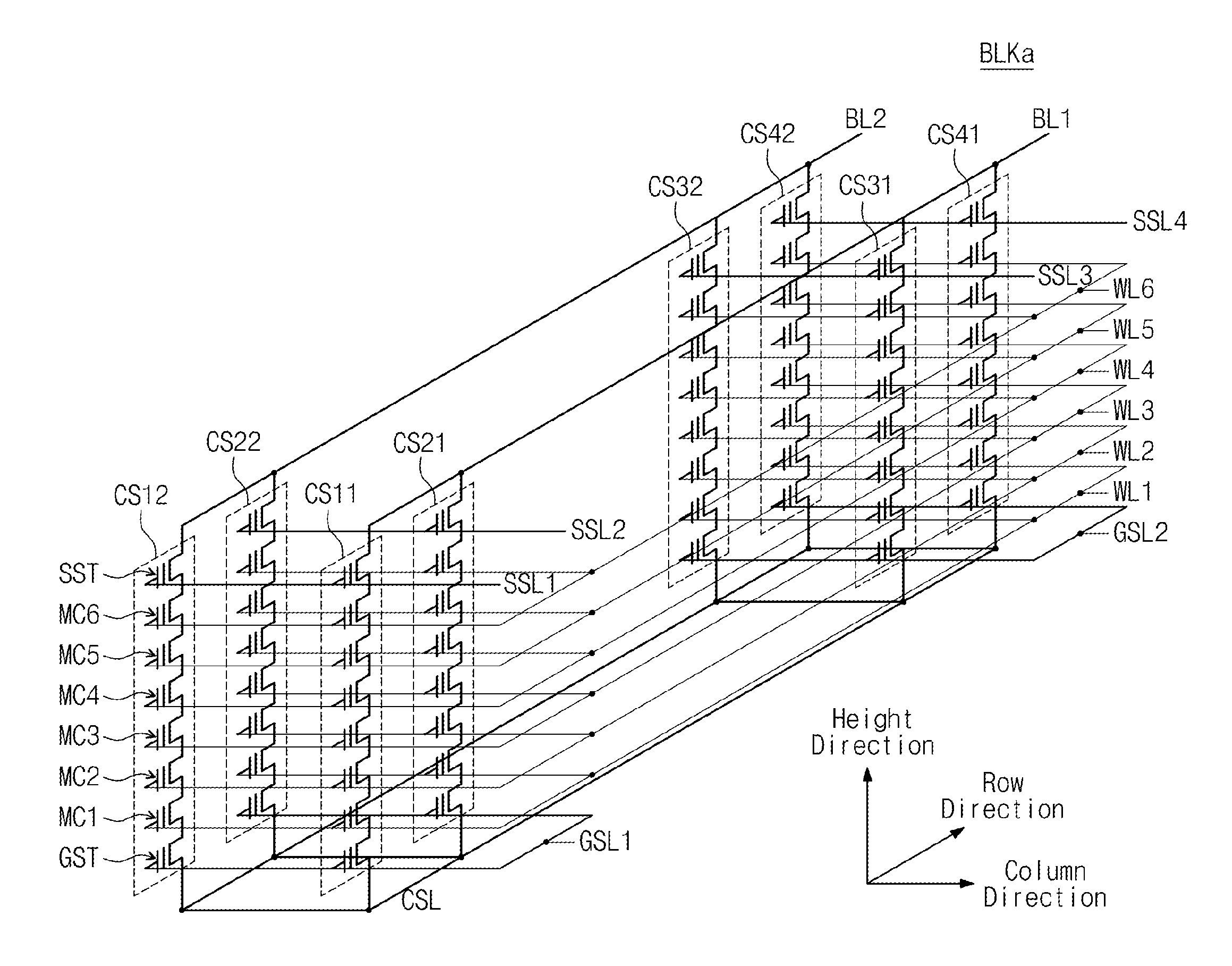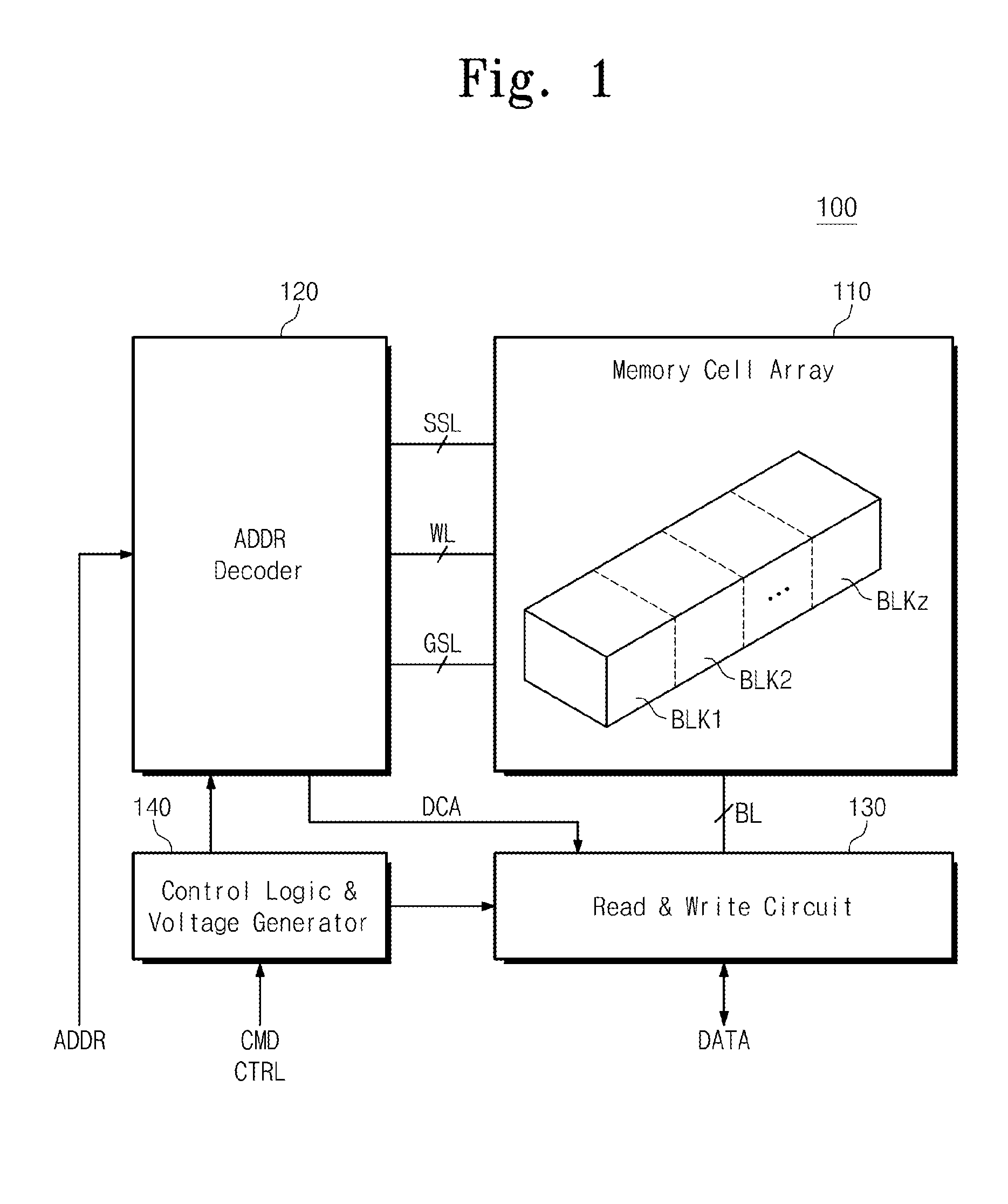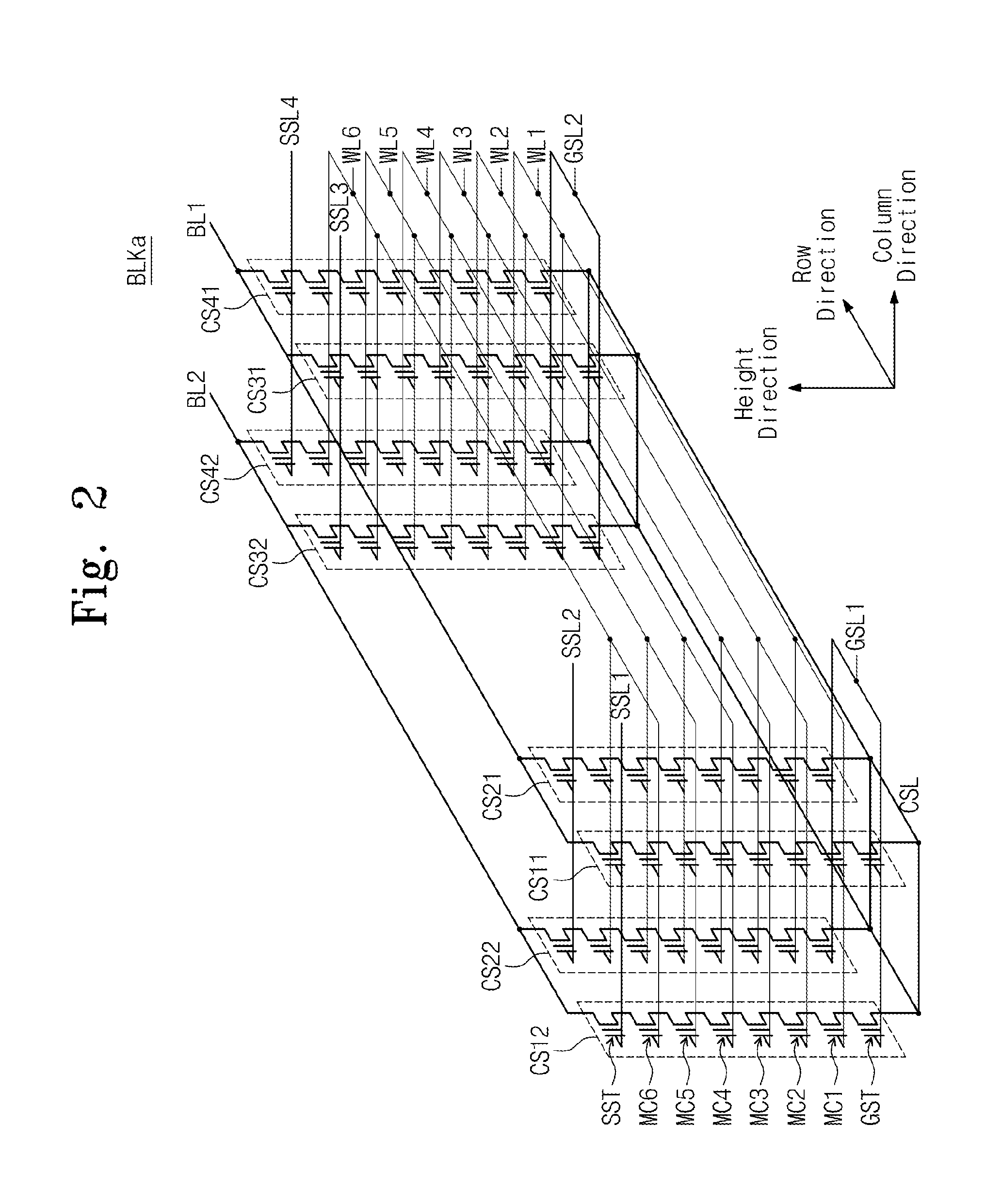Three-dimensional nonvolatile memory and related read method designed to reduce read disturbance
a nonvolatile memory and read method technology, applied in static storage, digital storage, instruments, etc., can solve the problems of different electrical parasitics of memory devices, and achieve the effect of substantially uniformizing the potential distribution of different cell strings and reducing read disturbances
- Summary
- Abstract
- Description
- Claims
- Application Information
AI Technical Summary
Benefits of technology
Problems solved by technology
Method used
Image
Examples
Embodiment Construction
[0034]Embodiments of the inventive concept are described below with reference to the accompanying drawings. These embodiments are presented as teaching examples and should not be construed to limit the scope of the inventive concept.
[0035]In the description that follows, the terms “first”, “second”, “third”, etc., may be used to describe various features, but these features should not be limited by these terms. Rather, these terms are used merely to distinguish between different features. Thus, a first feature could be termed a second feature without departing from the teachings of the inventive concept.
[0036]Spatially relative terms, such as “beneath”, “below”, “lower”, “under”, “above”, “upper” and the like, may be used for ease of description to describe one feature's relationship to another feature(s) as illustrated in the figures. The spatially relative terms are intended to encompass different orientations of the device in use or operation in addition to the orientation depict...
PUM
 Login to View More
Login to View More Abstract
Description
Claims
Application Information
 Login to View More
Login to View More - R&D
- Intellectual Property
- Life Sciences
- Materials
- Tech Scout
- Unparalleled Data Quality
- Higher Quality Content
- 60% Fewer Hallucinations
Browse by: Latest US Patents, China's latest patents, Technical Efficacy Thesaurus, Application Domain, Technology Topic, Popular Technical Reports.
© 2025 PatSnap. All rights reserved.Legal|Privacy policy|Modern Slavery Act Transparency Statement|Sitemap|About US| Contact US: help@patsnap.com



